Forgiveness: Lord, increase our faith
Written by H, Posted in Christian Living, Published Work
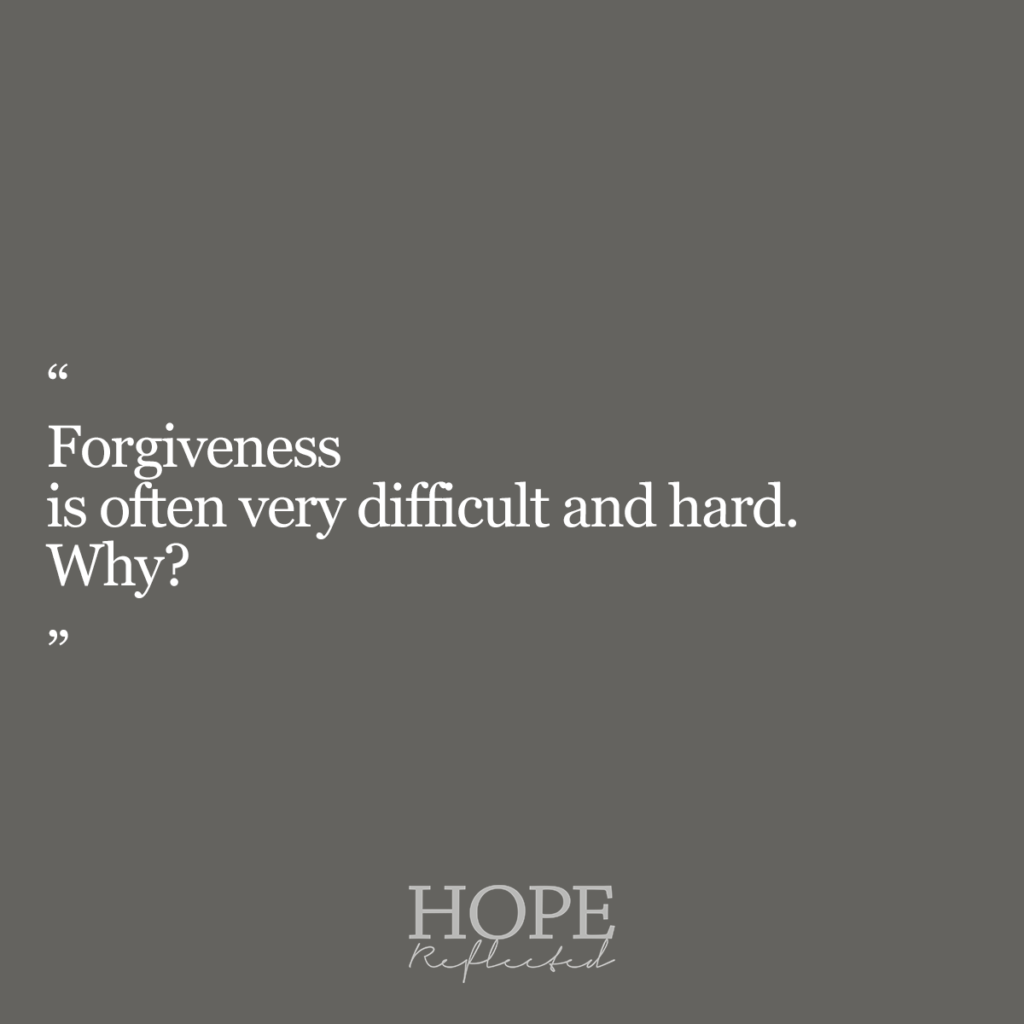
Why does forgiveness seem like such a hard option?
When someone wrongs us, our initial response is to set up our favourite defence mechanism. For some, it’s avoidance. For others, it’s revenge. For even more, it’s what I call the slow cooker, where we internalize whatever has happened. We put our hurt feelings in the slow cooker and set it to low, or high, and let it cook, stew, burn, and eventually harden to the sides of the slow cooker until getting that thing clean is near impossible. All of these responses are wrong, but it seems as though forgiveness is just as hard an option.
Why?
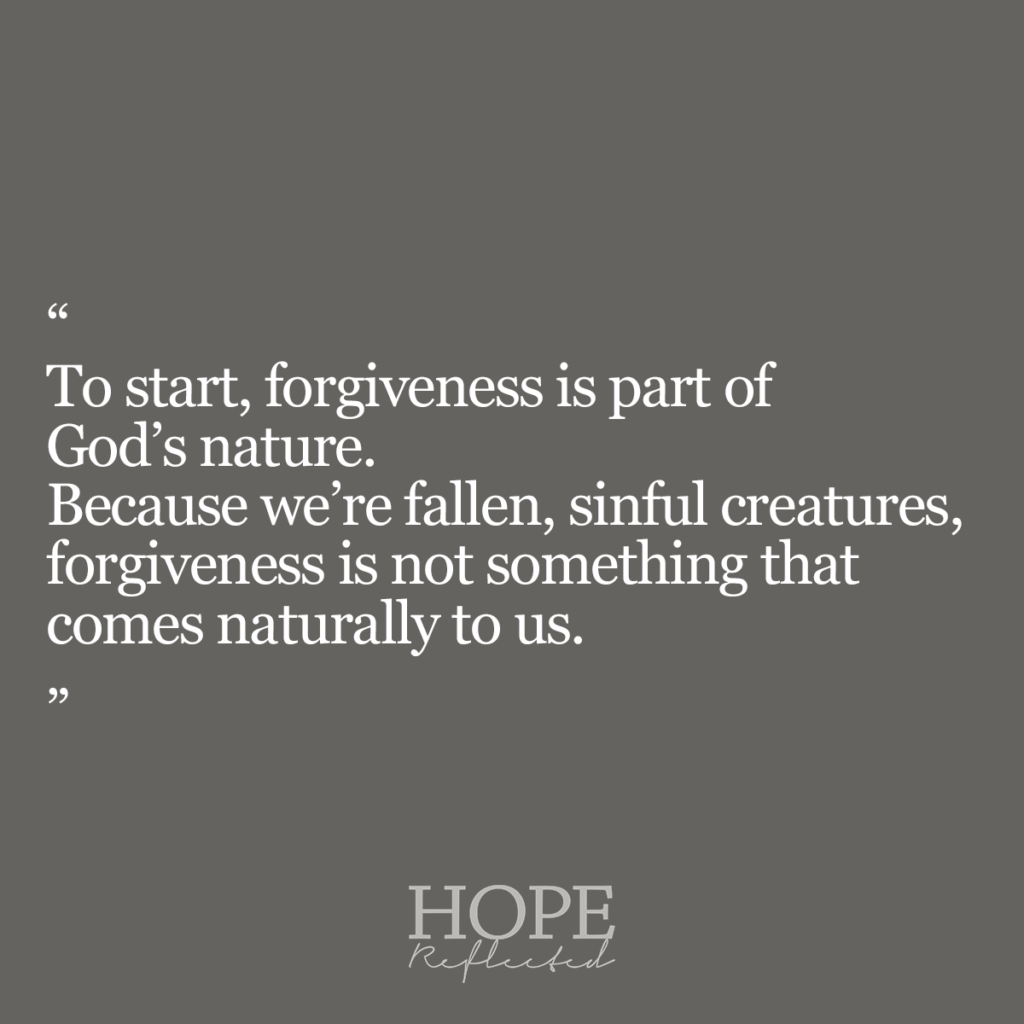
Forgiveness is part of God’s nature, not ours
To start, forgiveness is part of God’s nature, and because we’re fallen, sinful creatures, forgiveness is not something that comes naturally to us. Some people are born with the natural ability to sing, while others sound best when they keep their mouths closed. Other people have a natural aptitude to dance, while some people are safest when they stand still.
“For thou, Lord, art good, and ready to forgive; and plenteous in mercy unto all them that call upon thee,” David prayed in Psalm 86:5. God – without trying – is good and ready to forgive. He doesn’t need time, He doesn’t need to think about it, He is ready to forgive and shower us with mercy when we call on Him.
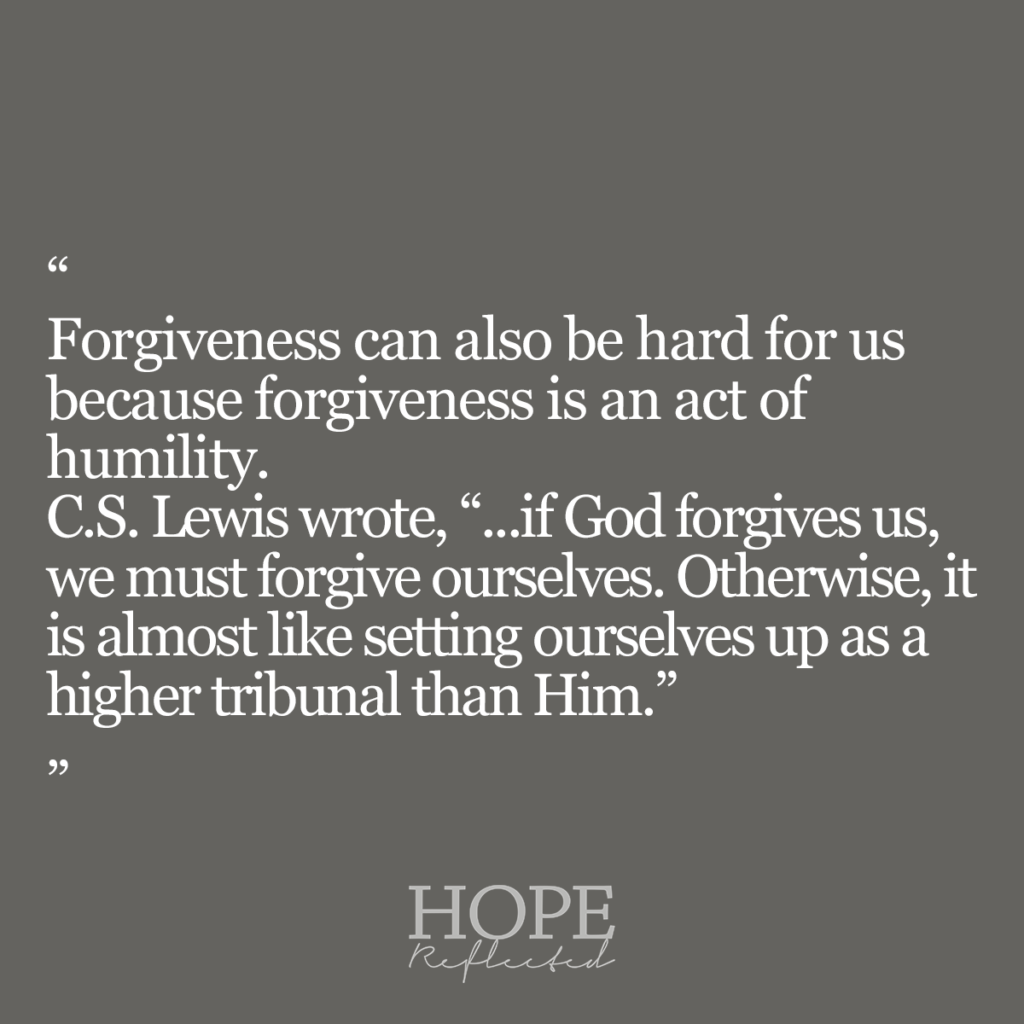
Forgiveness is an act of humility
Another reason that forgiveness is so hard for us is that forgiveness is an act of humility. C.S. Lewis wrote, “…if God forgives us we must forgive ourselves. Otherwise, it is almost like setting up ourselves as a higher tribunal than Him.”
James wrote in his eponymous epistle, “Humble yourselves in the sight of the Lord, and he shall lift you up.” (James 4:10). Similarly, Peter wrote “Humble yourselves therefore under the mighty hand of God, that he may exalt you in due time:” (1 Peter 5:6). To humble ourselves is first a choice, and also an act of repentance. Each one of us understands how humiliating it can be to go to another and say, “I’m sorry, I was wrong, please forgive me”. It is a difficult task to admit that we are wrong and repent.
Like humility, forgiveness is a choice. It is something that we do, and that we are called to do over and over and over again, many, many times (Luke 17:4).
“Humble yourselves in the sight of the Lord,
and he shall lift you up.”
James 4:10
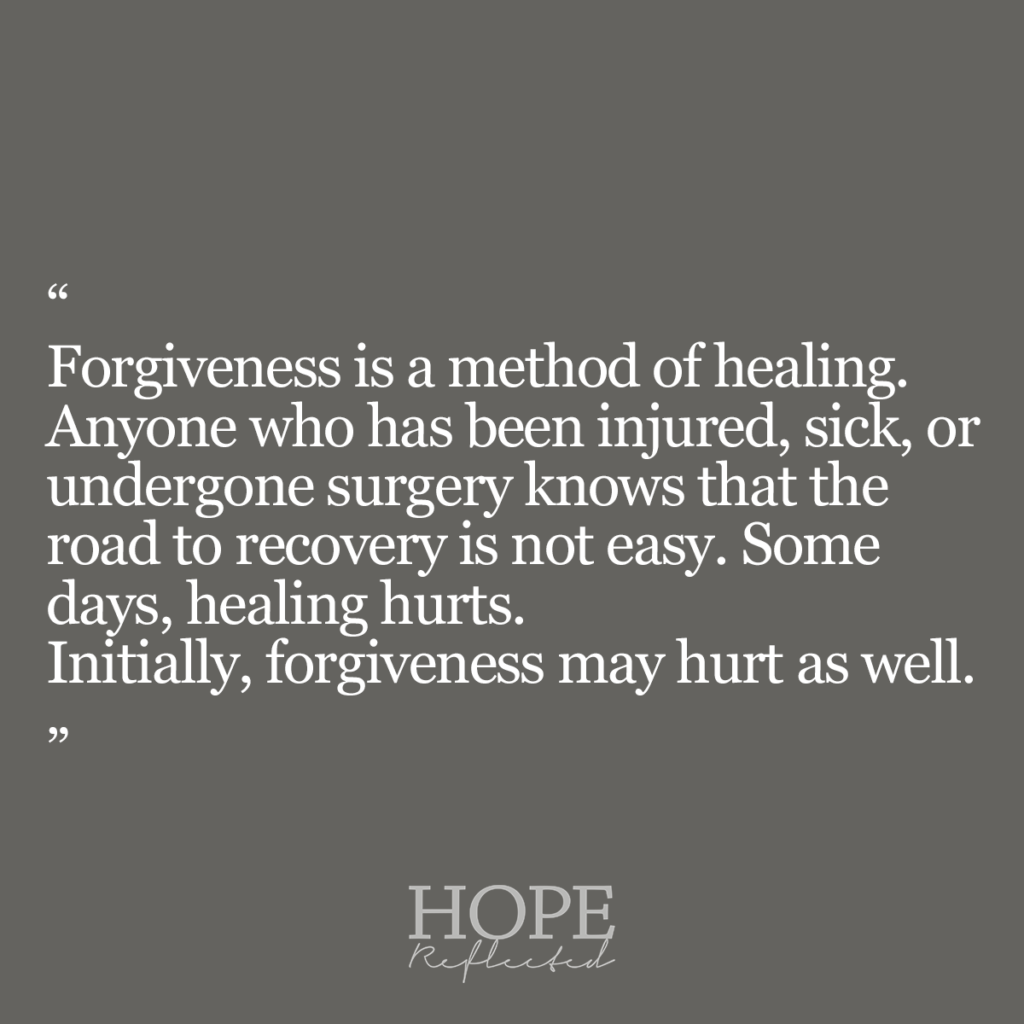
Forgiveness is a method of healing
Anyone who has been injured, sick, or undergone surgery knows that the road to recovery is not easy. Some days, healing hurts. Initially, forgiveness may hurt as well. Who wants to uncover old wounds or rip off the bandages hiding our hurt? Spurgeon said, “It is nobler to forgive and let the offense pass. To let an injury rankle in your bosom and to meditate revenge is to keep old wounds open and to make new ones.” Wounds must be treated if they are to heal properly.
When Hezekiah prayed for the Lord to pardon those that prepared their hearts to seek God, we read that the Lord healed the people (2 Chronicles 30:20). Forgiveness is no easy task. Like the disciples, we ought to approach it by asking the Lord to increase our faith.

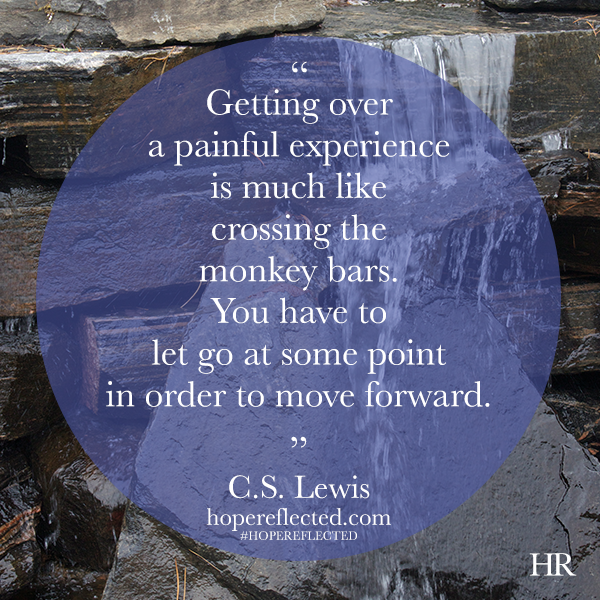

![False friends or counterfeit kindness; whatever you want to call it, the world is filled with people who will say one thing to your face and then another behind your back; people who will woo you in order to get something from you.
It’s sad, but it’s true.
The Bible provides us with examples from Joab to Judas, and yet, we’re surprised when we find ourselves deceived and hurt by someone else.
So what are some of the hallmarks of a true friend?
You can read more about this on hopereflected.com [Link in profile]
.
.
.
#friends #friendship #kindness #counterfeitkindness #hurt #proverbs #truefriends #hopereflected #blog #blogpost](https://www.hopereflected.com/wp-content/plugins/instagram-feed/img/placeholder.png)